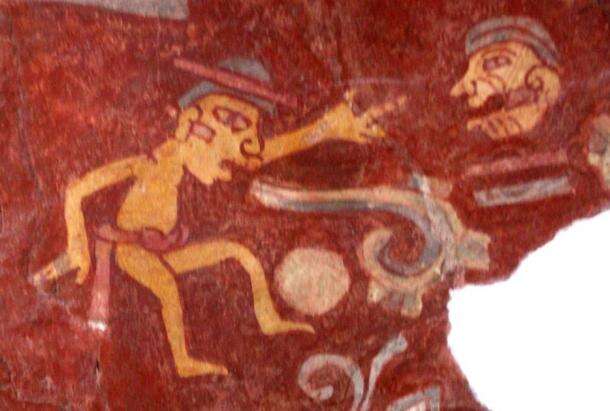“Dissociated Consciousness[es]”: The Rising Voice of the Administrator and the Falling Voice of the Academic in the Winter 2015 Labour Disruption at the University of Toronto
by Oliver Lue
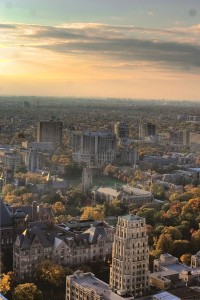 On February 27th, 2015, CUPE 3902 Unit 1, representing 6000 teaching assistants, course instructors and lab instructors, began job action against the University of Toronto.1 Members of CUPE 3902 demanded an increase to the minimum yearly stipend which had remained frozen at $15 000, an amount significantly below the poverty line for the city of Toronto, since 2008. Members also demanded tuition relief for unfunded members. In response to the strike, the administrative offices at the University of Toronto released several documents containing factually-questionable statements that served to vilify and discredit CUPE 3902 Unit 1 and its members. While there have been several public rebuttals to the University’s various public communications,2 no one has, to my knowledge, conducted an analysis of Vice-Provost Jill Matus’s email sent to all University of Toronto students on February 27th, 2015 (“Strike by CUPE 3902 Unit 1”)3 in relation to Professor Matus’s academic writing on the representation of strikers in the novels of Elizabeth Gaskell, a nineteenth century social realist author who wrote about the relationship between employer and employee. This position paper will attempt to do just that.
On February 27th, 2015, CUPE 3902 Unit 1, representing 6000 teaching assistants, course instructors and lab instructors, began job action against the University of Toronto.1 Members of CUPE 3902 demanded an increase to the minimum yearly stipend which had remained frozen at $15 000, an amount significantly below the poverty line for the city of Toronto, since 2008. Members also demanded tuition relief for unfunded members. In response to the strike, the administrative offices at the University of Toronto released several documents containing factually-questionable statements that served to vilify and discredit CUPE 3902 Unit 1 and its members. While there have been several public rebuttals to the University’s various public communications,2 no one has, to my knowledge, conducted an analysis of Vice-Provost Jill Matus’s email sent to all University of Toronto students on February 27th, 2015 (“Strike by CUPE 3902 Unit 1”)3 in relation to Professor Matus’s academic writing on the representation of strikers in the novels of Elizabeth Gaskell, a nineteenth century social realist author who wrote about the relationship between employer and employee. This position paper will attempt to do just that.
Professor Matus has written that, in Gaskell, “[f]eeling rather than thought, presence and orality rather than writing, define the representation of working-class subjects…feeling may be the means of connection among classes, a common language and a leveler of class 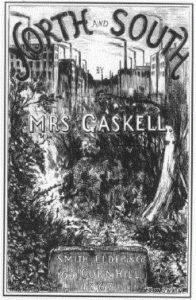 difference, but the way emotions are understood and represented often reinforces class stratification” (34-35, emphasis added). The way the Vice-Provost uses her ability to reachand influence students can bring solidarity amongst the University community or serve to “reinforce class stratification.” Reading the Vice-Provost’s email sent on February 27th, 2015 alongside Professor Matus’s writing on the representation of exploited workers in Elizabeth Gaskell’s Mary Barton and North and South, I suggest that the email disseminates what Professor Matus herself has called a “stereotypic” view of picketers as irrational and dangerous. Such a reading also reveals a problematic tension between the role of the administrator and the role of the professor in the neoliberal academy. This tension, I submit, undermines academic freedom, weakens the legitimacy of the academic voice, and in some cases serves to deploy academics’ research against vulnerable populations.
difference, but the way emotions are understood and represented often reinforces class stratification” (34-35, emphasis added). The way the Vice-Provost uses her ability to reachand influence students can bring solidarity amongst the University community or serve to “reinforce class stratification.” Reading the Vice-Provost’s email sent on February 27th, 2015 alongside Professor Matus’s writing on the representation of exploited workers in Elizabeth Gaskell’s Mary Barton and North and South, I suggest that the email disseminates what Professor Matus herself has called a “stereotypic” view of picketers as irrational and dangerous. Such a reading also reveals a problematic tension between the role of the administrator and the role of the professor in the neoliberal academy. This tension, I submit, undermines academic freedom, weakens the legitimacy of the academic voice, and in some cases serves to deploy academics’ research against vulnerable populations.
The usurpation of the academic voice by the university administration has been a slow but steady process. As Benjamin Ginsberg has noted, “Forty years ago, America’s colleges employed more professors than administrators. The efforts of 446,830 professors were supported by 268,952 administrators and staffers. Over the past four decades, though, the number of full-time professors or ‘full-time equivalents’—that is, slots filled by two or more part-time faculty members whose combined hours equal those of a full-timer—increased slightly more than 50 percent. That percentage is comparable to the growth in student enrollments during the same time period. But the number of administrators and administrative staffers employed by those schools increased by an astonishing 85 percent and 240 percent, respectively.” The example I trace in this paper is symptomatic of the tension between those who profess and those who administer in the contemporary university, a tension which is only getting worse as the contemporary university becomes more punitively neoliberal.
While purportedly written merely to inform students of a labour disruption, the Vice-Provost’s February 27th message does ideological work, undermining the strikers’ position. Specifically, the message paints a picture of CUPE strikers as irrational and dangerous. The email begins by informing students that members of CUPE 3902 Unit 1 rejected a “fair and reasonable” deal. The “fair and reasonable” formulation implies that members of CUPE 3902 were illogical and dishonest for rejecting the University’s offer. The Vice-Provost suggests that members of our community in lower income brackets who ask for more from their employers are unfair and unreasonable for doing so. 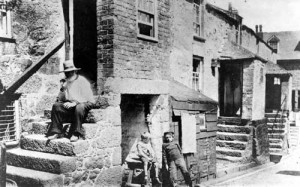 In her academic work, Professor Matus has written that in Elizabeth Gaskell’s Mary Barton “the linkage of disorderly working-class subjects with pathological psychic states is indicative of a larger pattern in which excessive feeling and lack of control are coded as a working-class problem” (32) and that the depiction of strikers in Gaskell’s North and South is an “especially stereotypic representation of primitive, working-class mob mentality” (41). The Vice-Provost’s email from February 27th similarly mobilizes a fear drawn from a conception of striking workers as prone to a “primitive, working-class mob mentality.” Professor Matus’s email warns students of “argument[s]” and “altercation[s]” involving picket lines and alerts students that their “safety [and] the safety of others” may be “compromised” by strikers. The message is that students need to remain vigilant because, at any point, violence may erupt from the picket line.
In her academic work, Professor Matus has written that in Elizabeth Gaskell’s Mary Barton “the linkage of disorderly working-class subjects with pathological psychic states is indicative of a larger pattern in which excessive feeling and lack of control are coded as a working-class problem” (32) and that the depiction of strikers in Gaskell’s North and South is an “especially stereotypic representation of primitive, working-class mob mentality” (41). The Vice-Provost’s email from February 27th similarly mobilizes a fear drawn from a conception of striking workers as prone to a “primitive, working-class mob mentality.” Professor Matus’s email warns students of “argument[s]” and “altercation[s]” involving picket lines and alerts students that their “safety [and] the safety of others” may be “compromised” by strikers. The message is that students need to remain vigilant because, at any point, violence may erupt from the picket line.
In Professor Matus’s academic work, she has also written that in Gaskell’s Mary Barton “working-class subjects have far more reason to mistrust official paper since the command and authority it conveys is never at their disposal and rarely works to their advantage” (34). At the University of Toronto, the Office of the Vice-Provost has the ability to send a missive to the entire student body, disseminating information with a measure of “command and authority” very few members of the University possess. The reach and institutional influence of the University’s “official paper” is “never at the…disposal” of the vast majority of the University population and has certainly not “work[ed] to the…advantage” of student workers who are members of CUPE 3902. The consequences of the negative portrayal of strikers in the Vice-Provost’s email are real. The conception of picketers as dangerous, unfair and unreasonable justifies the University’s hiring a private investigation firm to monitor picket lines, alienates students from one another, and legitimizes just one of many instances of gross income inequality in our society.4 Professor Matus has written that “in Mary Barton, passion and reason are opposed in working-class subjects; in North and South they are not so much oppositional as mutually informative” (41). My colleagues and I may have felt—and at many times did feel—emotional while on strike. But, as in North and South, “passion and reason” were and are “mutually informative” for us, not “oppositional.” Many members of CUPE 3902 are graduate students who work professionally with faculty like Professor Matus, and from whom she acknowledges she has benefited.
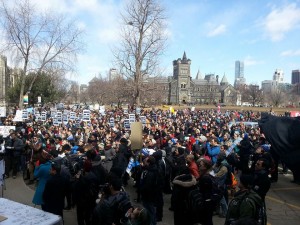 In her Acknowledgements to the Cambridge Companion to Elizabeth Gaskell, Professor Matus states that she is “indebted to the able and painstaking work of [her] research assistant at the University of Toronto” (x). We need to explore the implications, in monetary and ideological terms, of faculty being by their own admission “indebted” to the work of graduate students, especially when the same faculty make many times more money than the graduate students to whom they are “indebted.” We have cause to worry, also, about the implications of a scholar who researches the representation of exploited workers using her position as Vice-Provost to propagate a stereotypic representation of striking workers at her institution. Close-reading the Vice-Provost’s emails alongside her academic writing suggests that holding an academic and an administrative position entails a problematic fragmentation of the self, one to which Professor Matus would seem to be attuned.
In her Acknowledgements to the Cambridge Companion to Elizabeth Gaskell, Professor Matus states that she is “indebted to the able and painstaking work of [her] research assistant at the University of Toronto” (x). We need to explore the implications, in monetary and ideological terms, of faculty being by their own admission “indebted” to the work of graduate students, especially when the same faculty make many times more money than the graduate students to whom they are “indebted.” We have cause to worry, also, about the implications of a scholar who researches the representation of exploited workers using her position as Vice-Provost to propagate a stereotypic representation of striking workers at her institution. Close-reading the Vice-Provost’s emails alongside her academic writing suggests that holding an academic and an administrative position entails a problematic fragmentation of the self, one to which Professor Matus would seem to be attuned.
In the Cambridge Companion to Elizabeth Gaskell, Professor Matus writes about a model of the self whose “coheren[ce]” and “stab[ility]” are “precarious” (41). Says Matus, “[t]he model of selfhood [Gaskell] implies has a place for the work of unconscious experience[,] however problematically that may inflect questions of responsibility and accountability” (41). Significantly, the Vice-Provost signed the email sent out by her office on February 23rd, 2015 (“Information Regarding Possible Strike by CUPE 3902 Unit 1”), “Yours sincerely,/ Jill L. Matus”; the email sent by the Vice-Provost on February 27th, 2015, however, bears no signature. The lack of signature in the latter email tacitly indicates that Jill Matus does not stand by the comments sent out in her name in that email. One begins to think the dual role of academic and administrator also creates a “self” whose “coheren[ce]” and “stab[ility]” are likewise “precarious.”
Does the dual role of administrator and academic make the academic “‘not [him- or] herself’”? What pressures bear upon administrators to say what they say in their capacities as administrators? Professor Matus writes that “in lying[,] Margaret [from North and South] is ‘not herself.’ The sense of dissociated consciousness that is conveyed serves to exculpate Margaret (though she roundly condemns herself) from full responsibility for her actions…Although Gaskell does not resolve the question of moral responsibility for actions that seem to contradict one’s avowed and consciously held principles, she does use the experience to unsettle Margaret by opening her up to her own fallibility” (43). Do administrators ever find themselves “roundly condemning themselves” for the messages that their offices send out? 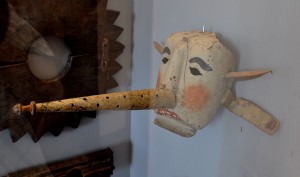 The dual roles of administrator and academic may be said to create a “dissociated consciousness” to “exculpate” academics from full responsibility for their actions—or inactions—as administrators. The position of administrator seems to force academics to do things that “contradict” their “avowed”—and, I would wager—“consciously held principles.” How do we—how should we—feel about this state of affairs? In theory, when academics hold administrative positions, their research and their “avowed and consciously held principles” inform the governance and direction of the university in constructive ways. The recent memos by the University of Toronto administration, however, leave us with grave doubts about the justice of how administrative positions work in practice.
The dual roles of administrator and academic may be said to create a “dissociated consciousness” to “exculpate” academics from full responsibility for their actions—or inactions—as administrators. The position of administrator seems to force academics to do things that “contradict” their “avowed”—and, I would wager—“consciously held principles.” How do we—how should we—feel about this state of affairs? In theory, when academics hold administrative positions, their research and their “avowed and consciously held principles” inform the governance and direction of the university in constructive ways. The recent memos by the University of Toronto administration, however, leave us with grave doubts about the justice of how administrative positions work in practice.
Academic freedom and tenure enshrine the importance of free, open and honest debate in higher education. The contemporary university administration, however, has suppressed some professors’ academic voices and, worse, has induced some professors to use their research knowledge against more vulnerable populations. A fear of reprisals from colleagues for criticizing the administration prevents many academics and students from speaking out against injustices. The university administration rewards silence in the face of its own internal contradictions. The prospect of gaining academic and administrative positions with greater power and influence (not to mention greater salary) paradoxically constricts academics rather than empowering them to put their “consciously-held beliefs” into practice. I understand that some administrators at the University of Toronto—department Chairs, for example—are contractually barred from speaking out against the University administration. The University’s message is that taking a side, as an administrator, against the University would be inappropriate. On the contrary, silence in this case is inappropriate. Taking sides on issues is what we do as academics. If we are to take the phrase to profess to mean something like to extoll that which one genuinely believes to be true, arrived at through a rigorous, peer-reviewed process, then recent University communications raise serious questions about the legitimacy of our academic voice. Where do we find a professor’s “consciously-held beliefs”? Where can professors speak genuinely? When academics speak as administrators today, are they professing or are they advertising? How should we engage with what professors say as administrators? Should the same rigorous, peer-review process apply there? If not, the administration loses any sense of legitimacy it may have. This loss of legitimacy reflects poorly on all we say as academics.
Oliver Lue is a Ph.D. student at the University of Toronto. He studies the representation of character in the Victorian novel.
Notes
- An earlier version of this essay was self-published on WordPress on March 16, 2015. I am deeply grateful to Catherine Schwartz, Alex Howard and two others (who wish to remain anonymous) for their invaluable feedback in reading drafts of the earlier version of this essay.
- See, for example, Dr. Erin Black’s Huffington Post article “Dear U of T: What is ‘Generous’ About Living Below the Poverty Line?” at http://www.huffingtonpost.ca/erin-black/u-of-t-student-strike_b_6801496.html and Ryan Culpepper’s “Open Letter to Cheryl Regehr” at http://cupe3902.org/wp-content/uploads/2015/03/Open-Letter-March-2015-2.pdf.
- The University of Toronto has posted the text of Professor Matus’s email here: http://www.rosi.utoronto.ca/news-20150301-strike-cupe3902.php.
- When asked in the media about hiring a Private Investigation firm, the University of Toronto has thus far avoided the issue, only admitting that they “did hire extra security staff, but could not [or would not] comment on accusations of videotaping and intimidation” (Brown).
Works Cited
Brown, Louise. “University of Toronto Strike: Weekend Mediation Yields Nothing.” Toronto Star 16 Mar. 2015, GTA sec. John D. Cruickshank. Web. 21 May 2015. <http://www.thestar.com/yourtoronto/education/2015/03/16/university-of-toronto-strike-weekend-mediation-yields-nothing.html>.
Ginsberg, Benjamin. “Administrators Ate My Tuition.” Washington Monthly Sept.-Oct. 2011. Web. 11 May 2015.
Matus, Jill. “Acknowledgements.” The Cambridge Companion to Elizabeth Gaskell. Ed. Jill Matus. Cambridge: Cambridge UP, 2007. x. Print.
–. “Information Regarding Possible Strike by CUPE 3902 Unit 1.” Message to University of Toronto Students. 23 Feb. 2015. E-mail.
–. “Introduction.” The Cambridge Companion to Elizabeth Gaskell. Ed. Jill Matus. Cambridge: Cambridge UP, 2007. 2. Print.
–. “Mary Barton and North and South.” The Cambridge Companion to Elizabeth Gaskell. Ed. Jill Matus. Cambridge: Cambridge UP, 2007. Print.
–. “Strike by CUPE 3902 Unit 1.” Message to University of Toronto Students. 27 Feb. 2015. E-Mail.
Big Featured, Education, Featured Articles, Public Intellectuals
Related News
News Listing
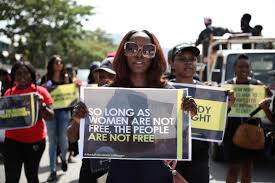
By Rosemary Kasiobi Nwadike ➚
Feminist Miseducation in the Afro-West: Examining (In)Formal Gender Indoctrinations
Articles, Education, Resistance, Social Justice
July 11, 2025

By Joban Sihota ➚
Natural disaster and civic literacy— Language acquisition in the wake of DANA
Articles, Cultural Pedagogy, Education, Public Education
July 8, 2025

